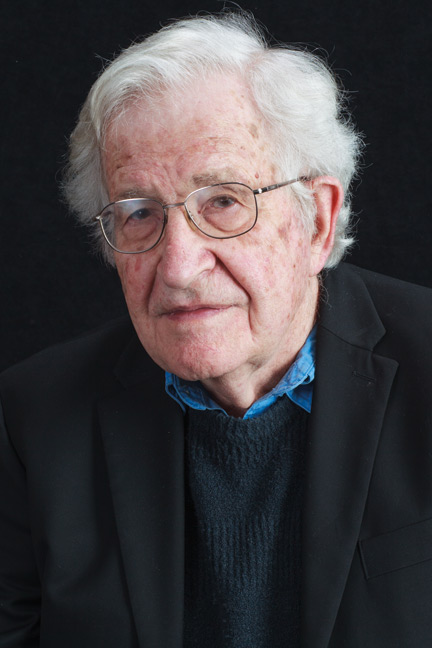Kubara, M.. (1996). Academic freedom. Interchange
Plain numerical DOI: 10.1007/BF01807291DOI URLdirectSciHub download
Show/hide publication abstract
“Dewey, j. (1902). academic freedom. educational review, 23(4), 1-14.”
Macintyre, S. F.. (2010). Academic freedom. In International Encyclopedia of Education
Plain numerical DOI: 10.1016/B978-0-08-044894-7.00835-6DOI URLdirectSciHub download
Show/hide publication abstract
“Academic freedom is a freedom distinctive to academic institutions and those who work in them, allowing them to undertake academic activities. it encompasses the freedom of the university from improper interference, the safeguards for academics in their teaching, research, and public commentary, and the entitlements of students in undertaking their studies. this article considers how these aspects of academic freedom were established, the different arrangements to which they have given rise, and the contemporary pressures on academic freedom. © 2010 elsevier ltd. all rights reserved.”
Aghion, P., Dewatripont, M., & Stein, J. C.. (2008). Academic freedom, private-sector focus, and the process of innovation. RAND Journal of Economics
Plain numerical DOI: 10.1111/j.1756-2171.2008.00031.xDOI URLdirectSciHub download
Show/hide publication abstract
“We develop a model that clarifies the respective advantages and disadvantages of academic and private-sector research. our model assumes full protection of intellectual property rights at all stages of the development process, and hence does not rely on lack of appropriability or spillovers to generate a rationale for academic research. instead, we focus on control-rights considerations, and argue that the fundamental tradeoff between academia and the private sector is one of creative control versus focus. by serving as a precommitment mechanism that allows scientists to freely pursue their own interests, academia can be indispensable for early-stage research. at the same time, the private sector’s ability to direct scientists towards higher-payoff activities makes it more attractive for later-stage research.”
Academic and Professional Freedom. (1969). British Medical Journal
Plain numerical DOI: 10.1136/bmj.4.5680.379DOI URLdirectSciHub download
Show/hide publication abstract
“This introductory chapter presents the reader with an overview of the historical trends, current status and market developments in academic and professional publishing, and a dark cloud gathering over the industry. the chapter notes how these widespread changes are addressed throughout the book, with chapters providing insight into the integrated, innovative and multi-disciplinary approaches publishers are applying to adapt to the challenges facing the industry and take publishing forward. it also outlines what publishers do, how publishers add value and what the future may look like for the industry.”
Philip G . Altbach. (2001). Academic Freedom : International Realities and Challenges. Higher Education
Plain numerical DOI: 10.1023/a:1026791518365DOI URLdirectSciHub download
Show/hide publication abstract
“Academic freedom is a central value of higher education. it affects the academic profession in all aspects of academic work. yet, academic freedom is rarely discussed in the context of the changes taking place in higher education in the current period. the concept is defined in a historical and comparative framework, and the challenges facing academic freedom around the world are discussed.”
Hill, H. H.. (1955). Academic Freedom and Responsibility. Peabody Journal of Education
Plain numerical DOI: 10.1080/01619565509536615DOI URLdirectSciHub download
Butler, J.. (2011). Critique, dissent, disciplinarity. In Conceptions of Critique in Modern and Contemporary Philosophy
Plain numerical DOI: 10.1057/9780230357006DOI URLdirectSciHub download
Show/hide publication abstract
“Academic freedom has become a contested category within the united states. on the one hand, conservative scholars have sought to use the term to criticize what they perceive as political correctness in the academy, whereas progressive scholars have sought to bolster academic freedom as a principle that safeguards academic self-determination over and against corporate and government intrusion. recently i published a debate with robert post in academic freedom after september 11. 1 this collection was first of all an effort to understand the definition and range of the concept of academic freedom. in his contribution, post argues that the way to pre-serve academic self-governance is to allow tenured faculty to make judg-ments about curriculum and appointments because they have undergone the relevant professional training in a given discipline and so are uniquely prepared to make these sorts of judgments. to protect academic freedom in this domain, then, depends upon our ability to protect the singular professional capacities that tenured faculty have assumed by virtue of pro-fessional training and practices of peer review. for post, the viability of the institution of academic freedom is founded upon established and agreed-upon academic norms, set and enforced by a professional class of educators who know the fields in question, and these norms, in turn, enable the kinds of research and teaching that we do. these norms, in fact, are the legitimating condition of our academic freedom. i have agreed with post that academic self-governance, which is crucial”
Giroux, H. A.. (2006). Academic Freedom Under Fire: The Case for Critical Pedagogy. College Literature
Plain numerical DOI: 10.1353/lit.2006.0051DOI URLdirectSciHub download
Show/hide publication abstract
“Part of a special issue on current right-wing attacks on academic freedom in the united states. there is much more at stake in the current assault on the university than the issue of academic freedom. right-wing extremists and corporate interests are making a concerted attempt to strip the professoriate of any authority, render critical pedagogy as merely an instrumental task, eliminate tenure as a protection for teacher authority, and remove critical reason from any vestige of civic courage, engaged citizenship, and social responsibility. it is critical that academics both develop a theoretical framework for engaging critical pedagogy and develop a defense for its use in the classroom as part of a broader project of linking education to democratic values, identities, public spaces, and relationships.”
Davies, M.. (2015). Academic freedom: a lawyer’s perspective. Higher Education
Plain numerical DOI: 10.1007/s10734-015-9884-8DOI URLdirectSciHub download
Show/hide publication abstract
“Academic freedom is central to ideas of higher education, yet in the united kingdom it is facing challenges from changing managerial approaches within some universities and changing governmental expectations. universities are increasingly expected to focus upon knowledge which can be shown to have value and to exploit the results of academic enterprise. resulting constraints on teaching and research by incessant market-driven demands have the potential to compromise academic freedom. this article considers aspects of academic freedom in an increasingly market-driven environment from a lawyer’s perspective. the legal protections for academic freedom in the uk are minimal, and consideration of the intellectual property policies of a significant number of uk universities suggests that, in many, academic outputs, especially those relating to teaching, have become subject to more entrepreneurial models of higher education, becoming potentially saleable products to be owned and exploited by universities as they see fit. the position is exacerbated by increasing developments in the use of technology as part of the teaching process. academics who lose ownership of aspects of their intellectual output risk the undermining of their position and academic freedom with a current employer and limiting their opportunities to change employer. © 2015, springer science+business media dordrecht.”
Sadler, D. R.. (2011). Academic freedom, achievement standards and professional identity. Quality in Higher Education
Plain numerical DOI: 10.1080/13538322.2011.554639DOI URLdirectSciHub download
Show/hide publication abstract
“The tension between the freedom of academics to grade the achievements of their students without interference or coercion and the prerogative of higher education institutions to control grading standards is often deliberated by weighing up the authority and rights of the two parties. an alternative approach is to start with an analysis of the characteristics necessary for a system to exhibit integrity in grading academic achievement and treat the establishment and maintenance of academic standards as a problem to be solved. this would allow the respective responsibilities of academics and institutions to be resolved within a concrete setting rather than in the abstract. connecting the typical characteristics of a profession with isaiah berlin’s two concepts of liberty leads to a productive partnership in which the respective interests of individual academics and the values of institutions can converge on a practical solution to the problem of academic freedom. © 2011 taylor & francis.”
Washburn, J.. (2011). Academic freedom and the corporate university. Academe
Plain numerical DOI: 10.1080/03098269208709181DOI URLdirectSciHub download
Show/hide publication abstract
“The article provides information on the challenges faced by professors in dealing with academic freedom in the u.s. it mentions that it has never been clear if academic freedom is something that belongs to the educational institutions where the professors work or to professors. it states that the quality of higher education will nearly fall without academic freedom.”
Aarrevaara, T.. (2010). Academic freedom in a changing academic world. European Review
Plain numerical DOI: 10.1017/S1062798709990317DOI URLdirectSciHub download
Show/hide publication abstract
“This article considers the academic profession and academic freedom in light of the results of the changing academic profession (cap) survey in finland and four other european countries. academic freedom is examined as a phenomenon that provides a setting for goal determination by members of the academic profession. it has a bearing on both institutional autonomy and individual academic freedom, i.e. the freedom of research and teaching. academic freedom can be examined on the basis of material from the cap survey through the questions about the freedom of teaching, the definition of work, working as a member of a community, the power of influence, funding, and the evaluation of quality. the concept of academic freedom varies slightly between countries, in part because of the growth of higher education systems and because of the increasing demand for ‘relevance’ being imposed on universities. [abstract from author]”
Brown, R. S., & Kurland, J. E.. (2014). Academic Tenure and Academic Freedom. Law and Contemporary Problems
Plain numerical DOI: 10.2307/1191800DOI URLdirectSciHub download
Show/hide publication abstract
“Tenure, like any other large, occasionally inefficient system, will probably remain under attack for years to come. anecdotal evidence of inferior scholars and teachers shielded by tenure makes a powerful hostile argument, though not a valid one. the economic and social costs of the tenure system are, we believe, outweighed by the fact that tenure is vital to academic freedom. no other proposed alternative (such as legal defenses, internal safeguards, less-than-career tenure, or tenure review) can provide adequate protection to the academic community. a greater danger to the tenure system than outright abrogation is continued circumvention. deficiencies in the due process accorded fired professors, dubious financial exigency claims by colleges and universities, the discontinuation of entire programs, and, especially, runaway expansion of nontenure-track positions threaten not to tear down the tenure system, but to weaken it severely.”
Karran, T.. (2009). Academic freedom in Europe: Time for a Magna Charta?. Higher Education Policy
Plain numerical DOI: 10.1057/hep.2009.2DOI URLdirectSciHub download
Show/hide publication abstract
“This paper is a preliminary attempt to establish a working definition of academic freedom for the european union states. the paper details why such a definition is required for the european union and then examines some of the difficulties of defining academic freedom. by drawing upon the experience of the legal difficulties beset by the concept in the usa and building on previous analyses of constitutional and legislative protection for academic freedom, and of legal regulations regarding institutional governance and academic tenure, a working definition of academic freedom is then derived. the resultant definition, which, it is suggested, could form the basis for a european magna charta libertatis academicae, goes beyond traditional discussions of academic freedom by specifying not only the rights inherent in the concept but also its accompanying duties, necessary limitations and safeguards. the paper concludes with proposals for how the definition might be tested and carried forward. [publication abstract]”
Thomas, N.. (2010). The politics of academic freedom. New Directions for Higher Education
Plain numerical DOI: 10.1002/he.416DOI URLdirectSciHub download
Show/hide publication abstract
“This is a thematic examination of the most influential ideas and writings on leadership. the text creates order from the chaos of leadership literature, and its structure, style and original approach encourages reader reflection.”


